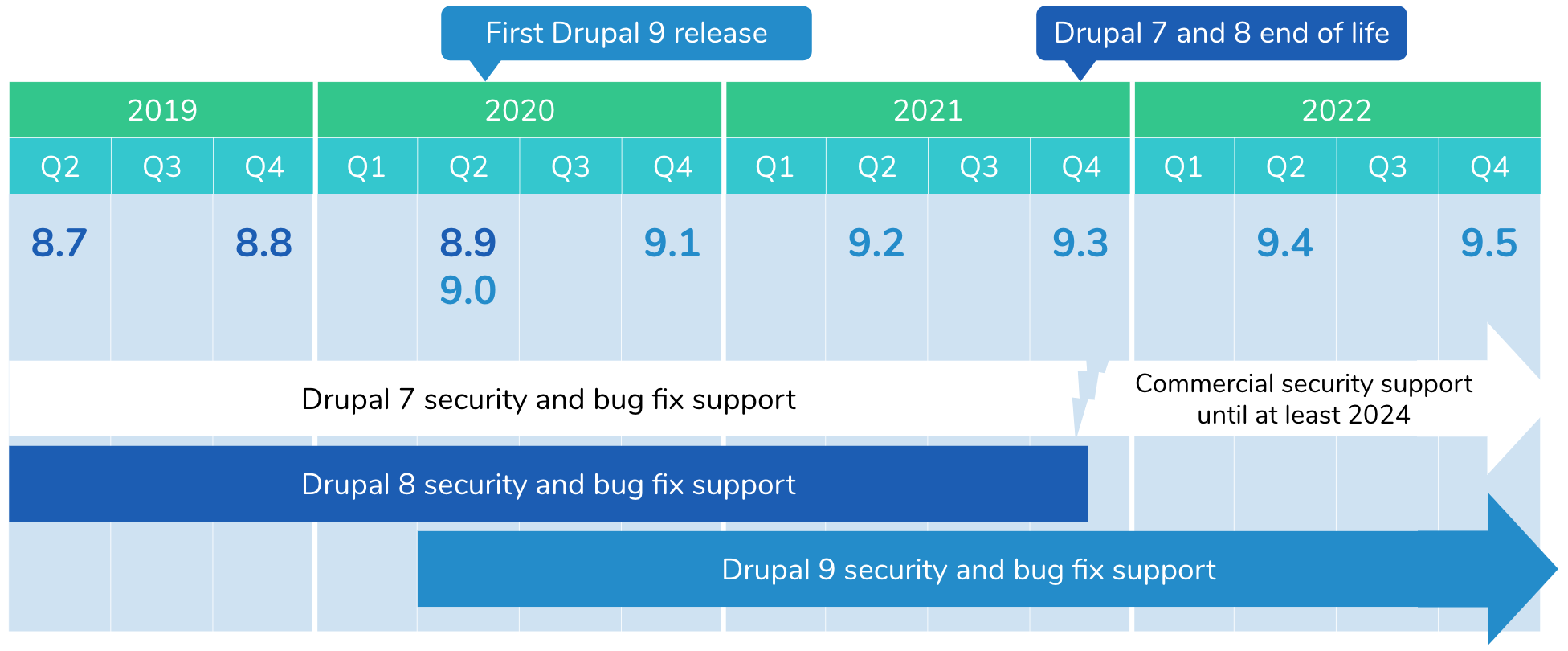
A project manager’s guide to making your next site Drupal 9 ready
Drupal Rector is a tool that’s designed to help automate Drupal code upgrades. While most of the information to date about using Drupal Rector has been written from a developer perspective, in this post, we’ll put on our project (or product) manager hats and see what it means for your project.
First, let’s set a common scenario:
- As a project manager, you are responsible for scheduling maintenance and upgrades to your portfolio of Drupal sites and applications.
- Staying on Drupal 8 introduces project risks once we enter 2021.
- Moving to Drupal 9 compatibility as soon as possible guarantees the best return on your investment in the platform.

With these factors in mind, what does Rector mean for your project? Let’s take a look:
- Rector is a set of tools for automatically updating the PHP code that runs your Drupal site.
- Drupal Rector is a set of tools specifically targeted at Drupal 9 compatibility.
- Your development or support team can use Drupal Rector to help prepare your site for Drupal 9.
- You can start today, getting in front of future risk.
- Your team can contribute to the health and stability of the Drupal project by contributing to Drupal Rector.
What might a project plan look like? First, look at the resources you have. If you have developers, they can take one or more of the following steps:
- Create new Rector rules for use by all Drupal developers
- Acquia maintains a list of common code deprecations that need to be addressed. You can cross-reference that list with our public list of issues.
- Use Drupal Check or Upgrade Status to get a list of deprecations in your current code.
- Use Drupal Rector to apply updates to your custom code.
- Drupal Rector can generate code updates for your custom project code, saving developer time. While not all issues can be fixed automatically, more than half of modules tested can be fixed simply with Rector.
At Palantir, we have focused on step 1 in order to enable our Managed Support team to perform steps 2 and 3. We work in Kanban sprints with a small team, and we have seen measurable progress in as little as a week.
Taking such a proactive approach as a project manager is a great way to ensure continued project success. As Drupal 8 will likely no longer receive community support after Q4 2021, taking steps to support Drupal 9 now will save your organization time and money in the future. It is also a great opportunity to contribute to the Drupal project and get organizational credit for doing so.
Photo by Bill Oxford on Unsplash